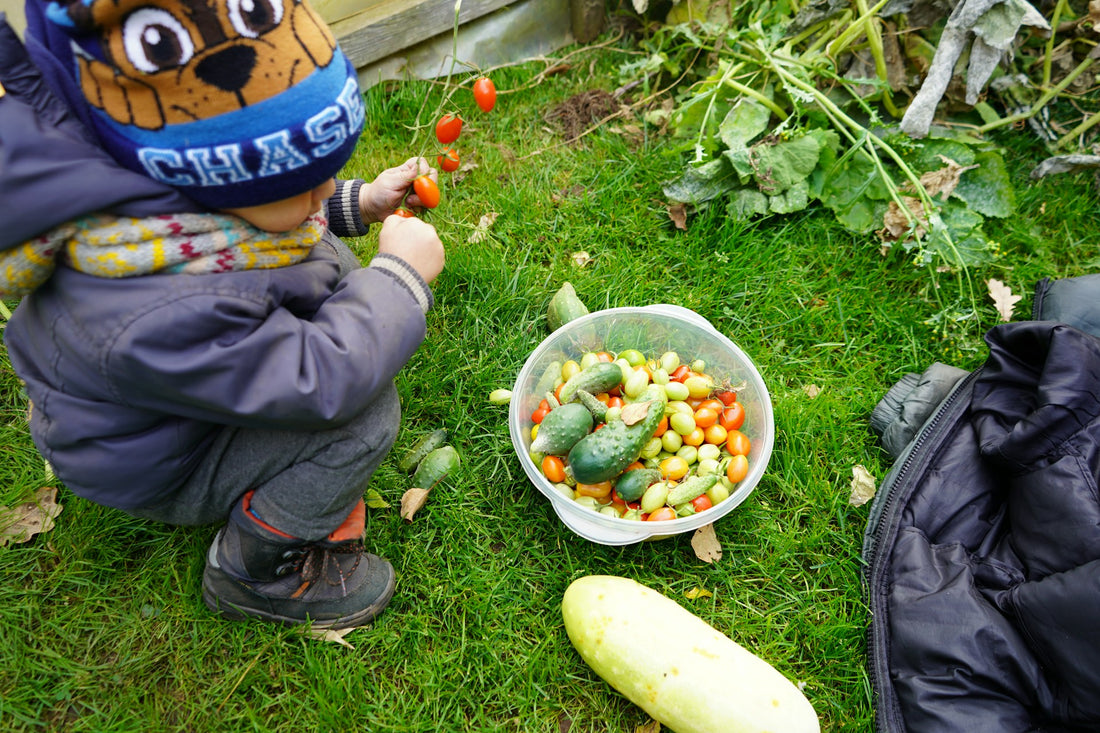Gardening is a wonderfully enriching activity that can captivate children's natural curiosity and instill valuable life skills. By involving youngsters in the joys of cultivating their own little patch of earth, we can unlock a world of wonder, self-sufficiency, and a deeper appreciation for the natural world. But how do we get them involved and spark that interest?
In our increasingly digital world, it's more important than ever to reconnect children with the natural world. Gardening provides a hands-on opportunity for kids to explore the wonders of the great outdoors, from the dances of pollinators to the intricate web of soil ecosystems.
The Allure of Gardening for Children
There's no greater feeling than watching your own seedlings sprout, grow, and ultimately yield a bountiful harvest. For children, this sense of achievement can be incredibly empowering, fostering a deep sense of pride and self-confidence. As they witness the tangible results of their efforts, kids develop a profound appreciation for the cycle of life and the role they play in it.
Gardening is a multifaceted activity that teaches children a wealth of valuable skills. From planning and problem-solving to patience and perseverance, the lessons learned in the garden can be applied to all aspects of life. Additionally, children who garden often develop a greater sense of responsibility, as they learn to care for their plants and the natural world around them.
One of the most tangible benefits of gardening for children is the opportunity to cultivate their own fresh, nutritious produce. As kids get their hands dirty and witness the growth of their favorite fruits and vegetables, they're more likely to develop a genuine appreciation for wholesome, homegrown foods. This, in turn, can lead to healthier eating habits and a lifelong love for fresh, seasonal ingredients.
Strategies for Engaging Kids in Gardening
Designate a Kid-Friendly Plot
One of the most effective ways to get children excited about gardening is to give them their own dedicated space within the garden. Whether it's a raised bed, a container, or a section of the main garden, having a personalized plot allows kids to feel a sense of ownership and investment in the process. Encourage them to design and decorate their own mini-garden. Paint rocks to decorate it. Add in pinwheels, gnomes, and other fun accents to make it joyful and appealing.
Provide Age-Appropriate Tools
Equipping children with the right-sized gardening tools can make a world of difference in their enthusiasm and success. Avoid the frustration of using ill-fitting, flimsy implements by investing in high-quality, child-friendly tools that are comfortable and easy to use. From mini shovels and rakes to lightweight watering cans, these specialized tools will empower kids to actively participate in the gardening process.
Grow Quick-Maturing Crops
To maintain a child's interest, it's essential to choose plants that offer a quick payoff. Opt for crops with short growing seasons, such as radishes, lettuce, beans, and cherry tomatoes, which can go from seed to harvest in a matter of weeks. Watching their efforts come to fruition in a relatively short timeframe will reinforce the connection between their actions and the resulting bounty. This will help keep them engaged and motivated.
Incorporate Sensory Experiences
Engage children's senses to make gardening a truly immersive experience. Encourage them to touch, smell, and even taste the various plants and flowers in the garden. The vibrant colors, enticing scents, and satisfying crunch of freshly picked produce can captivate young minds and ignite their curiosity.
Encourage Creativity and Exploration
Gardening is not just about planting and harvesting; it's also an opportunity for children to unleash their creativity. Invite them to design their own garden layout, craft whimsical plant markers, or build a miniature scarecrow to protect their crops. Provide a space for them to dig, observe, and experiment, allowing their natural curiosity to guide their exploration.
Foster a Sense of Responsibility
As children become more invested in their garden, gradually introduce them to the tasks of caring for their plants. Teach them how to water, weed, and monitor the growth of their crops. This will instill a sense of responsibility and ownership. This hands-on involvement will not only deepen their connection to the garden but also help them develop important life skills, such as patience, problem-solving, and perseverance.
Celebrate the Harvest
The culmination of a child's gardening journey is the harvest. Make a big deal out of this milestone by involving the whole family in the celebration. Encourage kids to pick, wash, and prepare their homegrown bounty, then share it in a family meal or special treat. This positive reinforcement will solidify their pride in their work and inspire them to continue their gardening journey.
Overcoming Challenges and Setbacks
Dealing with Waning Attention Spans
Young children are notorious for their short attention spans, and gardening can sometimes feel like a long-term commitment. When their enthusiasm starts to wane, be prepared with engaging activities and diversions to reignite their interest. Incorporate elements of play, such as building a scarecrow or creating a nature-inspired craft, to keep them invested in the process.
Addressing Impatience and Disappointment
Gardening requires a certain degree of patience, which can be a challenge for some children. When faced with slow-growing plants or unexpected setbacks, kids may become easily discouraged. Reassure them that small setbacks are a normal part of the gardening journey and help them find joy in the small victories, such as the first sprout or the emergence of a new leaf.
Managing Mess and Dirt
Let's face it, gardening can be a messy affair, and some children may be reluctant to get their hands dirty. Embrace the mess and encourage them to fully immerse themselves in the experience. Provide them with appropriate clothing, such as gardening gloves and aprons, and make it clear that a little dirt is all part of the fun.
Protecting the Garden from Pests and Predators
Children may become disheartened when their carefully tended plants fall victim to pests or wildlife. Involve them in the problem-solving process, brainstorming eco-friendly solutions and deterrents. Teach them about the importance of beneficial insects and how to create a garden that attracts pollinators and deters unwanted visitors.
Extending the Gardening Experience
Gardening can be a wonderful way to foster a sense of community among children and their families. Encourage them to share their harvests with neighbors, donate excess produce to local food banks, or participate in community gardening initiatives. These connections will not only strengthen their sense of purpose but also instill a deeper appreciation for the role of gardening in supporting local food systems.
To keep children engaged in gardening year-round, explore ways to extend the growing season. This could involve setting up a cold frame or greenhouse, experimenting with indoor herb gardens, or planning for a winter-themed garden with evergreens and hardy perennials. By providing opportunities for year-round exploration, you'll foster a deep, lasting connection to the natural world.



